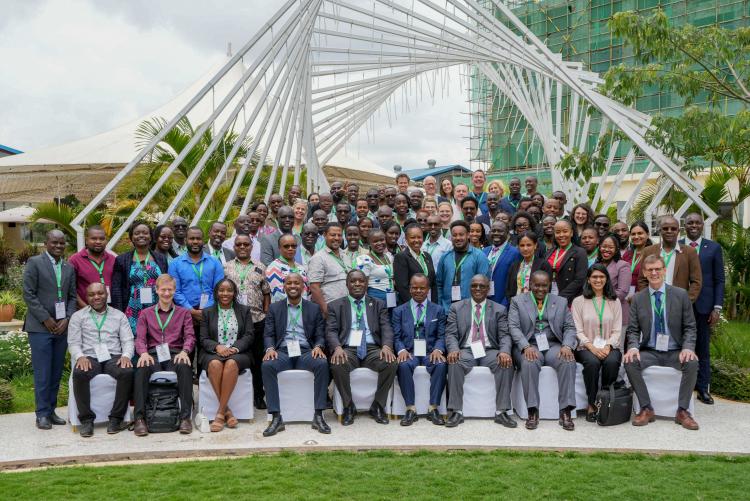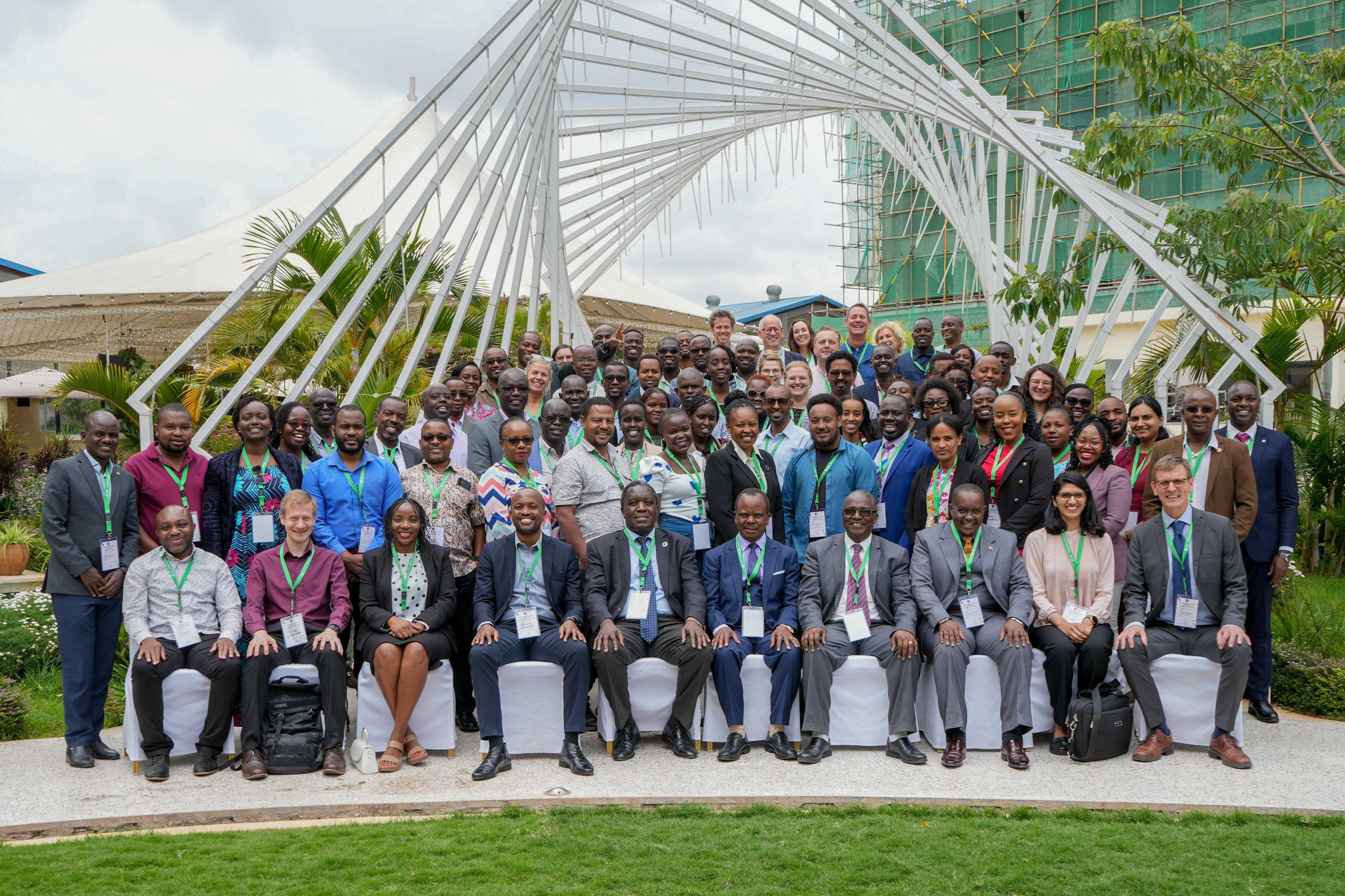UoN Co-Hosts 18th EfD Network on Advancing Sustainable Development
The 18th Annual Meeting of the Environment for Development (EfD) Network, held from October 3 to 6, 2024, at the Argyle Grand Hotel in Nairobi, highlighted the urgent global need for collaborative, policy-driven research to address environmental challenges, particularly within the Global South. Organized by the University of Nairobi in partnership with the African Association of Environmental and Resource Economists (AFAERE), this prestigious gathering convened a distinguished array of environmental economists, policymakers, and researchers from across the world, offering an unparalleled platform to discuss sustainable development and innovative solutions for pressing environmental issues.
Swedish Ambassador Caroline Vicini opened the discussions with a compelling keynote, highlighting Sweden’s commitment to supporting sustainable development research. She affirmed Sweden's enduring support for EfD and emphasized the critical need for scientific collaboration with low-income regions like Sub-Saharan Africa. Ambassador Vicini underscored that, without united efforts by scientists and policymakers worldwide, achieving the Sustainable Development Goals (SDGs) would be unattainable. She expressed hope that the EfD model would continue to empower nations by fostering analytical capacity that supports evidence-based policy-making and locally informed solutions. Her remarks set a powerful tone for the conference, reaffirming the importance of inclusive scientific collaboration to tackle shared global challenges.
UNEP’s Regional Director for Africa, Rose Mwebaza, built on this foundation by spotlighting Africa’s significant role in the fight against climate change. She emphasized that Africa, with its rich ecosystems and biodiversity, faces disproportionate impacts from climate-related challenges, affecting millions who rely on the land for their livelihoods. Mwebaza advocated for economic policies that value natural resources and ecosystem services, urging governments and research institutions to align policy and research efforts to address the continent's unique environmental needs. She also called for reform of the global financial system to prioritize sustainability, suggesting that Africa’s focus should shift from traditional GDP growth to inclusive wealth measures. This approach, she argued, would build resilience against climate shocks, ensuring sustainable progress and economic opportunity for the region.
Representing the University of Nairobi, Deputy Vice Chancellor Prof. Francis Mulaa echoed the urgency of collective action in his address. Speaking on behalf of Vice Chancellor Prof. Margaret Jesang Hutchinson, Prof. Mulaa highlighted the University’s ongoing commitment to environmental stewardship and its pivotal role in tackling global crises like climate change, pollution, and biodiversity loss. The University’s dedicated research centers, including the Wangari Maathai Institute and EfD-Kenya, he noted, are actively contributing to Kenya’s Climate Change Action Plan and Sustainable Waste Management Act, which offer promising models for sustainable growth in the region. Prof. Mulaa also emphasized the long-standing collaboration between the University and EfD, a partnership that has been instrumental in shaping effective environmental policies across Kenya and East Africa since 2007. He expressed confidence that the discussions from this year’s meeting would deepen these partnerships, fostering further research efforts toward sustainable development.
The meeting commenced with a Policy Day, led by Prof. Richard Mulwa, EfD Kenya’s Center Director and Chair of the Local Organizing Committee. Prof. Mulwa outlined the importance of a "Just and Inclusive Transition" across critical sectors such as energy, transport, and industry within East Africa. His leadership at EfD Kenya has significantly advanced the center's influence in environmental and climate change discourse, particularly through its collaborations with government entities, civil society organizations, and academic institutions. By aligning its initiatives with national and regional policies on climate resilience, water management, and sustainable economic practices, EfD Kenya has made valuable contributions to understanding and implementing sustainable growth strategies.
Across four days, participants engaged in intensive plenary sessions, interactive workshops, and parallel discussions. Each session featured groundbreaking research and practical policy applications, enhancing the meeting’s value as a transformative gathering for environmental discourse. Among the conference highlights were the open sessions on artificial intelligence for environmental data analysis and the prestigious EfD Gender Analysis Award, both reflecting EfD’s commitment to technological advancement and gender inclusivity in environmental research.
The conference also showcased innovative research from various EfD centers, including those in Ethiopia, South Africa, Colombia, and Vietnam. These daily parallel sessions fostered a rich exchange of ideas, encouraging cross-regional collaboration on issues like climate adaptation, sustainable resource management, and environmental economics. With Kenya as the host country, the University of Nairobi underscored its dedication to environmental thought leadership, further amplifying the nation’s role in advancing sustainable development solutions. The conference not only positioned Nairobi as a central hub for environmental research but also reaffirmed EfD’s role in shaping a resilient, research-driven future for the Global South.
The successful conclusion of this landmark event not only positioned Nairobi as a hub for environmental thought leadership but also reinforced the University of Nairobi's commitment to fostering research-driven solutions for global environmental challenges. As the conference drew to a close, it was evident that the collaborative spirit and shared expertise would continue to drive meaningful progress toward building an inclusive and resilient future for the Global South, exemplifying the power of international cooperation in addressing our world's most pressing environmental concerns.


